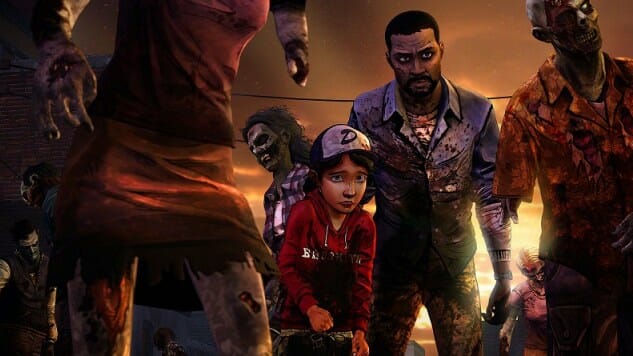Telltale’s Labor Disaster Proves Game Developers Need to Organize

Last week, broadly-revered game studio and publisher Telltale Games announced that the majority of its workforce was being let go, citing poor sales as the primary reason for the layoffs.
The studio went from over 250 employees to a skeleton crew of 25, as the studio finishes work on one project currently in development (Minecraft: Story Mode for Netflix, specifically).
Reports from employees on twitter cited surprise and shock at the proceedings surrounding the layoffs, and many noted the lack of posted notice or severance pay. Some employees had started working at the studio only a week before layoffs were announced.
By all accounts this was a labor disaster. It shouldn’t have to be said that I (and the rest of Paste Games) am a strident supporter of game developer labor organization, and occurrences like this only strengthen that resolve. What Telltale’s former employees are dealing with is not just a bad bunch of layoffs, but a barometer for the state of the industry. If a studio this big, still selling games in the tens of thousands, can lay off that percentage of their workforce without even so much as due notice, what does that say about development studio labor as a whole?
But perhaps the most troubling aspect of the Telltale fiasco is the popular reception to another recent announcement: Telltale will be moving forward with The Walking Dead without its developers. Citing “multiple potential partners” as possible cooperators in the action, Telltale appears to be planning to continue development on the title without its workforce and while continuing to leave its former employees stranded without severance pay.
To say that this is a disaster would be putting it mildly. The games industry has hundreds of success stories and for each success story there are a hundred failures behind it: games that failed, work that was unpaid, developers burnt out from crunch and overwork. Former Telltale employees have flocked to twitter to detail the labor conditions at Telltale shortly before its layoff announcements, citing “sleepless nights and long hours on weekends.”
It would be overly simplistic to say that the Telltale layoffs should be a siren to the industry. To tell the truth, they are only the latest in a series of sirens that have been ringing since 2004’s EA Spouse letter. The problem here is not simply overwork, it is the idea that developers are disposable, that development work is not truly work, and that developers should be kissing the feet of whichever studio deigns to hire them.
It is a paradigm that is reflected not just in the proceedings of last week, but the popular response to Telltale’s decision to move forward with finishing The Walking Dead (a property that will assuredly make money) without committing to paying their former employees severance or adequate reimbursement.